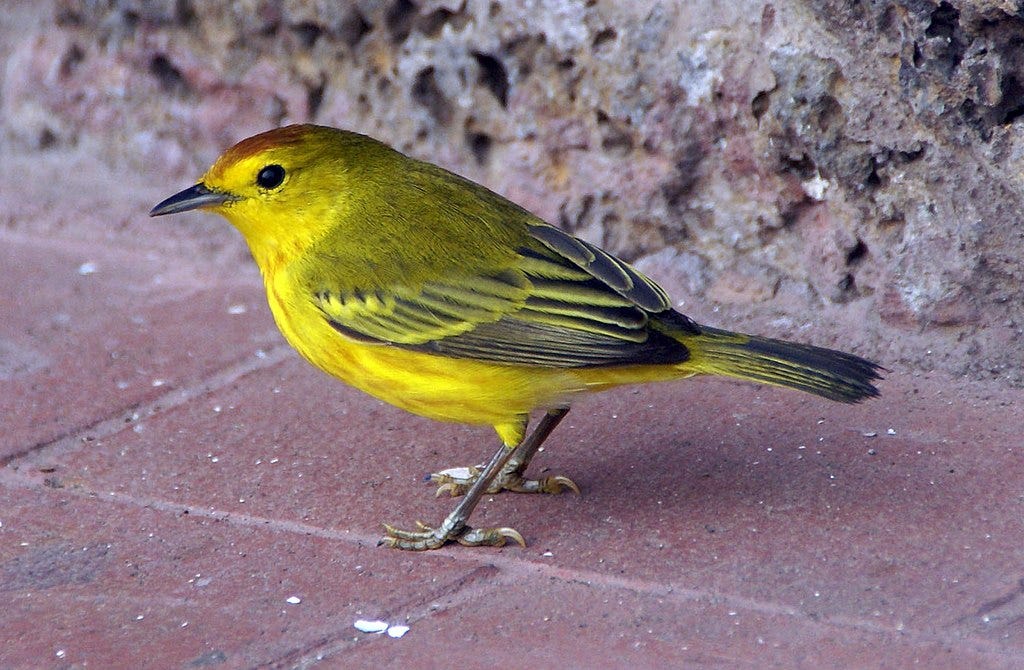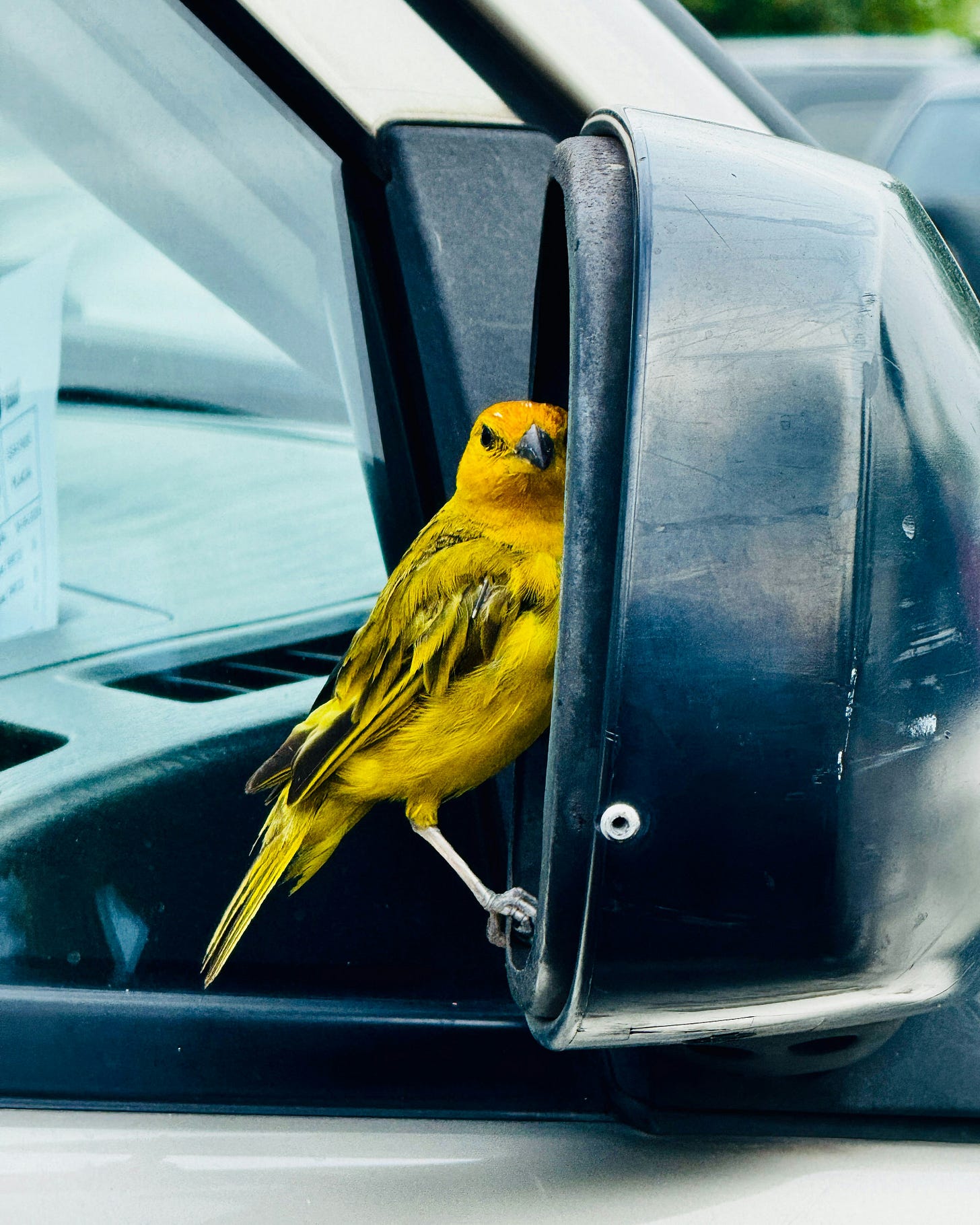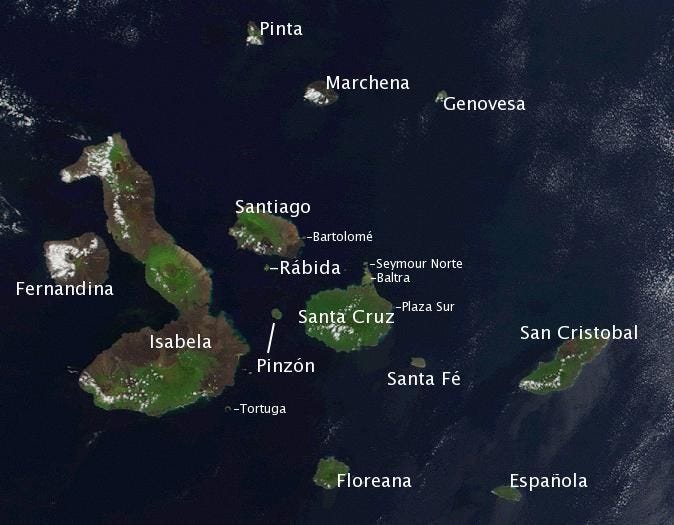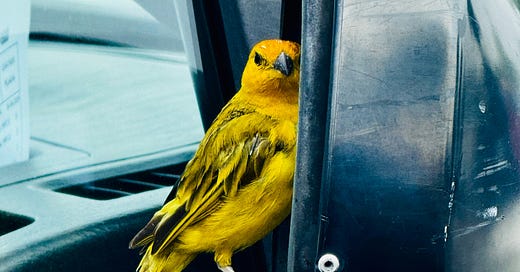Traffic noise increases aggressive behavior in territorial songbirds
Background traffic noise impairs vocal communication and increases aggressive behavior in songbirds on the Galápagos Islands.
After moving to Belgium in 2018, I lived in an apartment right next to a busy street. The sounds of cars, trucks, and motorcycles, coupled with regular contributions from trams, buses, and ambulances, provided an unpleasant and constant background noise. Often, the noise level was so high that I needed to close the windows if I wanted to have an untroubled phone call. Traffic noise can impair our vocal communication—and that of songbirds as well.
Songbirds use vocalization as a major means for communicating with their conspecifics. Their calls, songs, chirps, and chatter convey important messages to their fellows — such as “Wanna make some baby birds?” or “Get out of my territory!” or “Watch out, predator approaching!”. But what if their vocal signals are drowned out by other sounds, such as traffic noise? If a bird finds its songs less audible because of background noise, it may resort to more aggressive means of communication in conflict situations. And indeed: a new study indicates that traffic noise increases aggressive behavior in a songbird species on the Galápagos Islands1. Let’s dive right into it!

Simulating territory intrusion
The Galápagos yellow warbler (Setophaga petechia aureola, a subspecies of the Yellow warbler common in North America) is a small songbird that inhabits the islands of the Galápagos archipelago. As a territorial species, these birds rely heavily on vocal signals to defend their territory. For this study, researchers played recordings of the song of conspecifics to wild male Yellow warblers through speakers they attached to trees, thereby simulating the presence of an intruder in the territory. To test whether the targeted male reacted differently to the intrusion in the presence of traffic noise, they used playbacks with or without accompanying recordings of traffic sounds.
The playback of songs coupled with traffic noise indeed triggered more aggressive reactions: the targeted birds approached the speaker more closely and tried to locate the assumed intruder more actively. Interestingly, though, this was only the case for birds that were experienced with traffic noise, i.e., those that lived in a territory close to a road.

Traffic noise also induced changes in the song characteristics of the targeted birds. The males sang with an increased minimum frequency, i.e., at a slightly higher minimum pitch, possibly to reduce overlap with the frequency of the traffic noise and thereby improve their audibility. Birds showed this adjustment in their vocal response regardless of their territory’s distance from a road.
The researchers concluded that background traffic noise impairs vocal communication in yellow warblers—which is worrying because it renders this non-violent method of communication useless and forces the birds to adopt more aggressive behavior.
The Galápagos Islands are not what they used to be
The anthropogenic change on the islands of the Galápagos archipelago is immense. On Santa Cruz, the second-largest of the islands, the number of vehicles increased from 23 to 1,326 between 1980 and 2013. That is an increase of more than 5,665%. This not only affects the aggressive behavior and birdsong of local songbird species—it also diminishes their survival rate. More than 70% of roadkills on the main road of Santa Cruz are yellow warblers. Our anthropogenic footprint has a worrying impact on the wildlife of this beautiful place.

Historically, the Galápagos Islands have been a ‘natural laboratory’, the holy grail for evolutionary biologists studying natural selection. Nowadays, these islands are more and more becoming a laboratory for the study of the impact of human activities on island birds.
Let’s make a difference
Traffic noise doesn’t only harm songbirds on the Galápagos Islands. Any bird trying to engage with its conspecifics via vocal signals is impacted by the sounds of our vehicles. All the birds living in or near our ever-extending urban areas are hindered in their vocal communication. Let’s help them understand each other again. Let’s reduce the use of our cars to the absolute minimum, especially during the breeding season.
Have a wonderful rest of the week! All the best,





I believe it. That island is so important you’d think they’d do anything and everything to protect the creatures living there.
I’ve never given much thought to how our urban noise impacts birds, but of course it must. The sounds of our cities are so stressing. How could wildlife not feel it too?